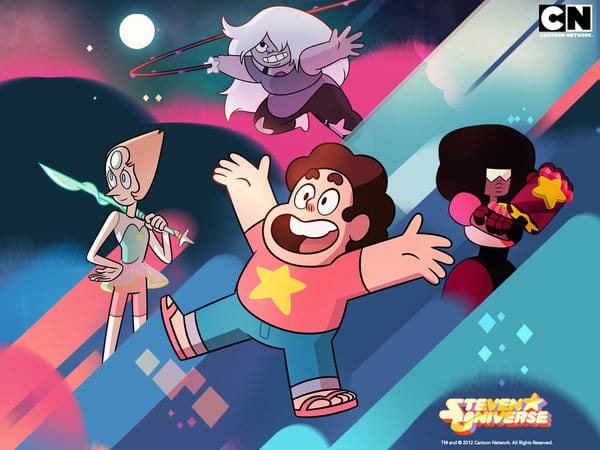Splendor is getting an expansion, and I’m here to explain why this is exciting. But first I have to explain board games, because here at the Fandomentals, we have two rules: 1) analyze your favorite media until there’s too much analysis, 2) there’s never too much analysis. I love board games, so I shall tenderly dissect them.
The Fandomentals gaming section doesn’t have commentary on board games yet. I’m going to start with the basics: what makes a board game good for beginners in the hobby? There’s a lot of articles out there if you Google “beginner board games.” Recommendations are typically a mixed bag, and sometimes board games can be….a little difficult to get into.
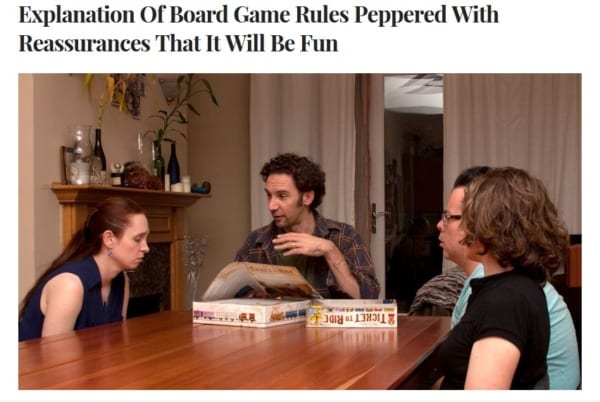
Experts often lose sight of what a beginner can and can’t do. I’m not going to give a list of recommendations, because I am not here to learn you how to do board games. I’m just here to explain a few things common to good beginner board games, so that by the end of this article, you’ll be able to identify exactly why Settlers of Catan sucks.
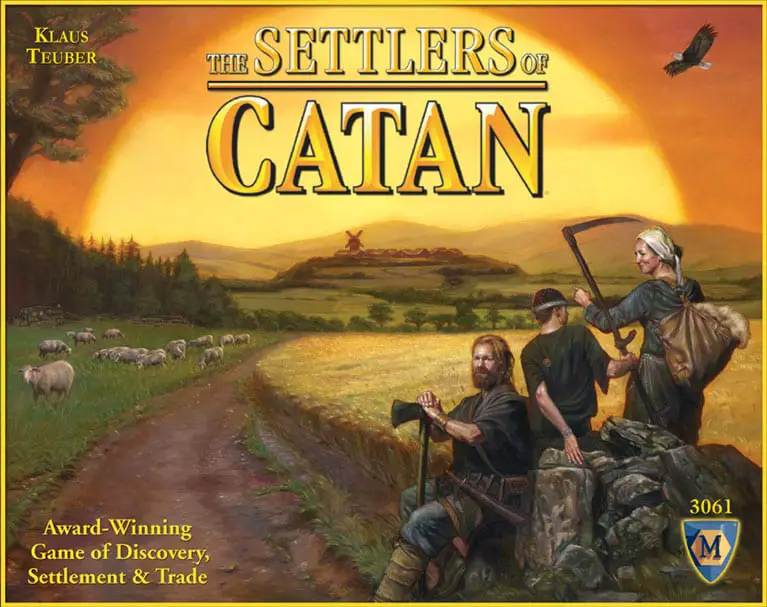
Too Much to Take in at First Glance
First things first: a beginner board game needs to look simple. Put differently, a new game needs to appear to be simple. When somebody is playing a game for the first time, everything is new, and that can be fun. This also means every part of the game requires a little bit of concentration.
Concentration is a resource that can quickly be depleted. A beginner will remember which deck of cards on the board they are going to draw from, but it will take a little concentration to remember. They might remember how to move their player token in this weird new game, but it will take a little concentration to remember. And every beginner can always ask for help, but it takes a lot of concentration to worry about whether you look dumb for asking an obvious question. For something to be a beginner board game, it has to minimize the mental load as much as possible. Where do we start with minimizing that? With the game’s appearance. It’s got to look simple, or it won’t feel simple. If this exciting new game has approximately a hundred different parts, the fun will be over before it’s even begun.
Maybe you’re reading this article with some knowledge of games already, and I know, you think you know lots of people who can look past appearances. That’s because you’re part of the matrix, and you don’t even see the code anymore, you just see what’s behind it. Once again, experts have difficulty recognizing the hidden costs of being a beginner. But that’s an essay for a different time. Let’s stick to the point with a visual example of a complicated game. Take a look at this board here:

That’s fairly complicated. A beginner might look at that and decide not to play. Of course you can tell the beginner that they just have to worry about the colorful cubes, which are diseases. Easy! But it will add a little bit to their mental load. You can tell your friend, ignore the cure markers, the experts will handle that. Don’t worry about the infection deck, you’ll be drawing from the other deck. But that’s still a mental load. It’s obvious that you can travel between lines. Less obvious that you can travel between research stations. But hey, you can check the rules. Or ask an experienced player. Not that hard to learn, right?
The point isn’t how easy the board is to learn. It’s about quantity, pure and simple. What amount of moving parts can a beginner keep track of? More importantly, at what point is it no longer fun? More of a mental exercise than a game? An experienced player can look at this board and immediately know what areas to concentrate on. They won’t even waste a thought on cities that only have one cube, because they know automatically that it takes three for an outbreak. It’s not that a beginner doesn’t know this either. It’s that such knowledge comes without a thought for the expert, takes effort for the beginner.
This effort adds up, no matter how small. It doesn’t matter if it really is very easy to remember these rules. If it takes a split second of thought, it goes on the mental load. Enough things on your mind to concentrate on, and eventually it breaks the camel’s back.
Consider a contrasting example, in the game that prompted this article:
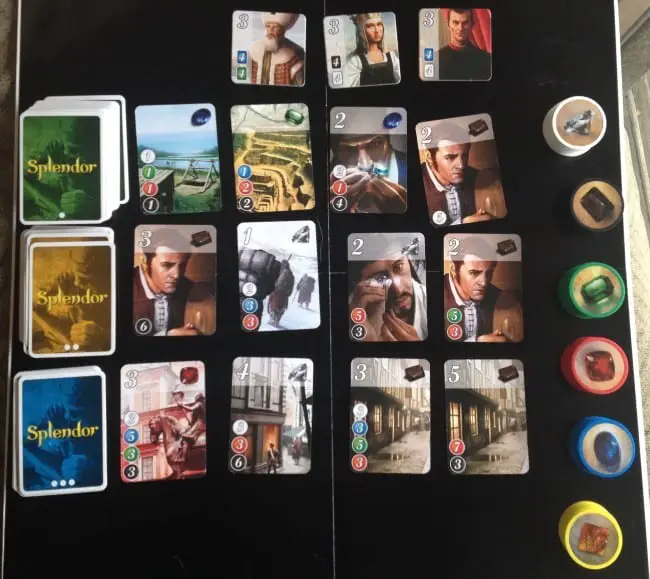
This is a game of Splendor. Those cards are what you can buy. Those are the gems you use to buy them. Those are the nobles at the top for after you’ve bought those cards. The end. This game board is going to look the same at the beginning to the very end.
Splendor doesn’t give you as much to keep track of. A beginner doesn’t have too many things to concentrate on, simply because there aren’t as many parts. Not because I think this game should be simple, but because it needs to literally appear simple. That’s the first step.
Too Much Freedom
Being an expert means you probably give terrible advice on what makes a good beginner board game. Don’t worry, I’m not susceptible to this, because I’m not an expert. I am just naturally awesome, and I haven’t invested any effort to get where I am. I haven’t even revised this essay. I’ve never made a typo in my life. Anyway, another mistake experts often make when introducing people to board games is that they pick a game that gives you a lot of freedom and lets you win any way you like. This is a wonderful sentiment, and such freedom is also a bad idea.
I enjoy this counterintuitive route to good tabletop games because it leads me to a criticism of the gateway game we all love to hate, Settlers of Catan.
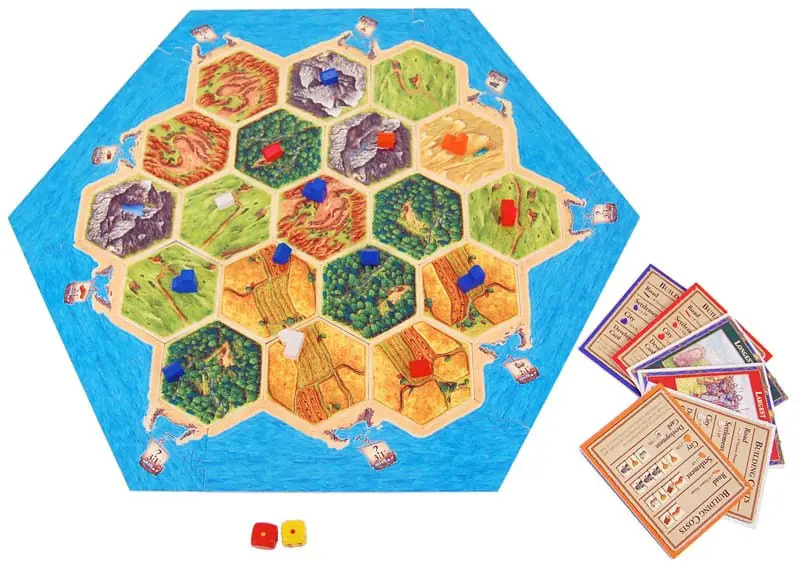
Catan got popular enough that it introduced a lot of people to the hobby, but as a gateway game, it’s terrible. It’s the equivalent of Monopoly from past decades, or chess in the centuries before that. A game that is a) ubiquitous, b) boring, and C) still used for some reason to show people one of the very few ways that a bunch of cardboard is not fun.

The analysis of why Catan is terrible is a little too personal and long-winded, but let’s address one particular failing of that successful game to show why limiting choices is good for boardgames and especially introductory games.
In Catan, you are allowed to trade resources and build up your settlements across an unexplored continent. Trading is accomplished by negotiating with fellow players for their resource cards in exchange for your cards. That’s cool, say aspiring economists everywhere. What’s important is there are no guidelines or time limits. You can trade 2 resources for 1 resource. You can promise more resources later for some resource now. You can spend 10 minutes talking to one opponent for a trade, and that’s part of your turn, while players not involved can just take a quick nap.
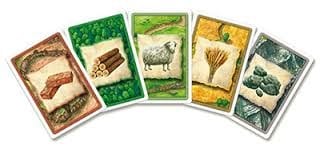
This sort of freedom can kill a person’s interest in a game very quickly. It will always be easier for a beginner to stay under the radar and simply pass the turn, cut their turn short, or skip any attempt at strategy altogether. This tendency towards disengagement is just one reason why Catan is a difficult game to recommend.
The alternative to open-ended turns is taking away that freedom. You can call it taking away choices, or you could call it providing structure to gameplay. Same thing. Many board games give you a limited number of actions. These can all be good beginner board games, to an extent. Pandemic is a terrible beginner game because it is cooperative, and it looks complicated. On the other hand, Pandemic is a good beginner game because it gives you four actions and then your turn is over. It limits your options, so you know for sure when you’re done.
In Catan, you are always wondering if you should do more before passing the turn. You have short turns where you couldn’t do anything, and you have long turns where the world is open to you. This is interesting, but not for beginners, who need repetition and a standardized turn format to know when they are doing well. A clear example of action economy done well would be Love Letter.
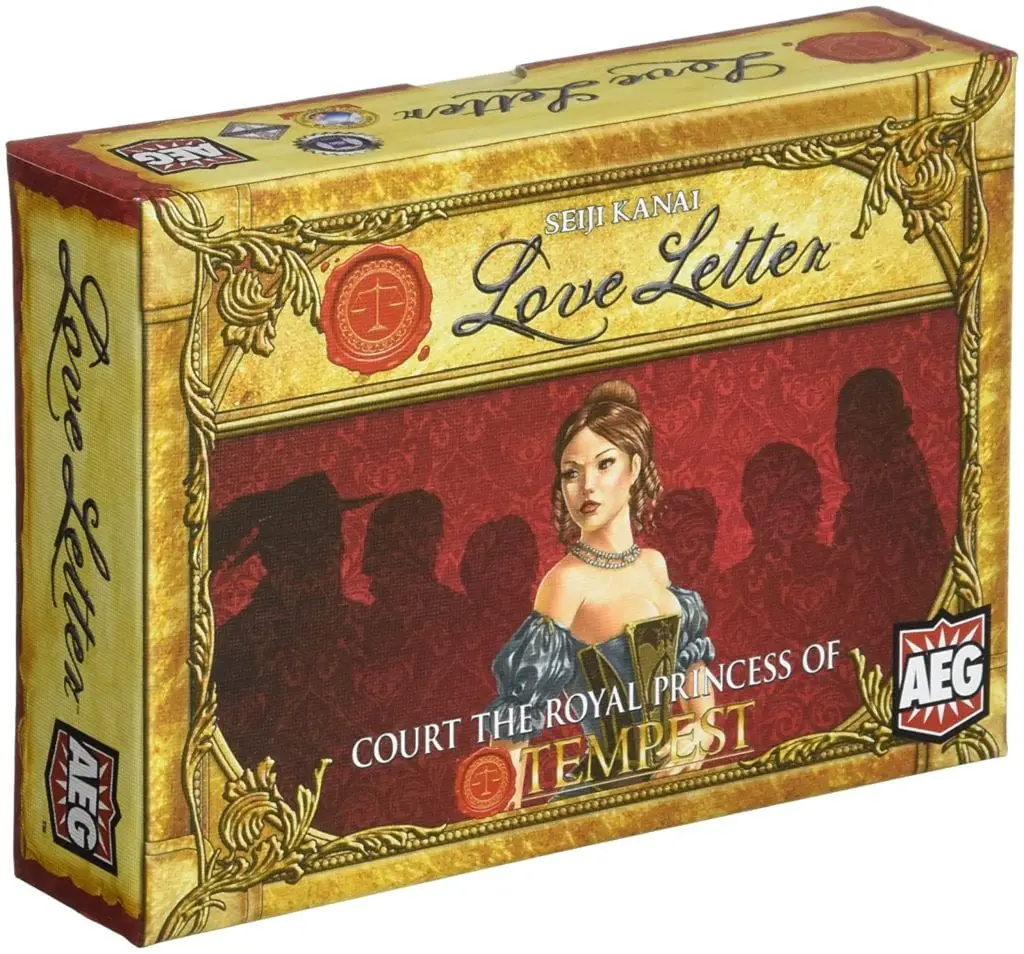
This short card game just gives you two cards – choose one to keep, discard the other and take its action. Your choices are limited to two, and this makes it easier for beginners to concentrate on winning the game and having fun.
Love Letter reduces options, but that doesn’t mean it reduces your ways of playing the game. The choices you can take on your turn are reduced, but not the ways your turn can push you towards victory. In Love Letter, the objective is to be holding the highest value card when the small, very small, deck runs out. This occasionally happens.
But plenty of people play to eliminate the others first, and to hold onto high cards second. The game could end after just a few clever eliminations. Or maybe you will discard a higher card to deceive people, because knowing what is in somebody else’s hand is a significant advantage when it comes to surviving the intrigue of Love Letter. There’s a number of strategies, ranging from offensive to defensive. It’s a good game for beginners because your choice of action is limited, but not your choice of overarching strategy.
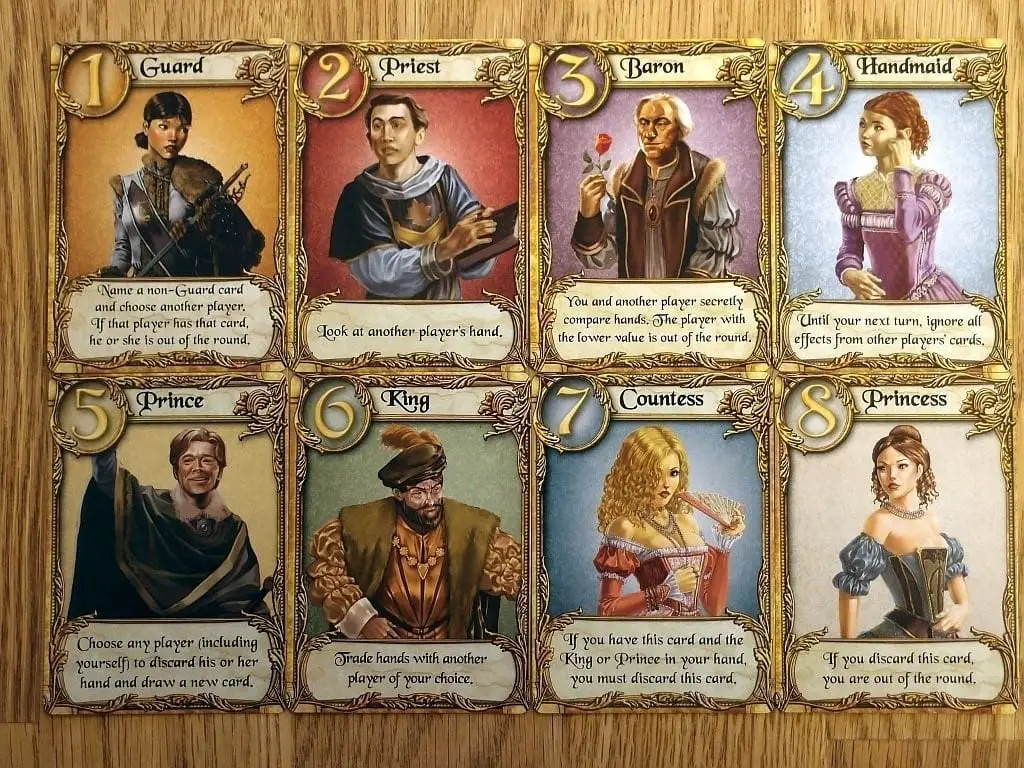
The Stakes are Too High
Love Letter and Splendor are good for beginners. These games keep the setup simple. They keep the rules simple. They’re easy for beginners to learn. They reduce choices, but leave open many paths to victory. And the last factor I’ll be covering is the most important one: beginner tabletop games are difficult to lose.
A high stakes game is not a beginner board game. Any time you’re playing a game for the first time, you will find many ways to screw it up outside of the game itself. I’m talking about messing up the rules, misreading a rule, forgetting to take an action on your turn, focusing on the wrong part of the game, all sorts of things. You probably might not even notice different ways you are playing it wrong.
In Splendor, the rules are like, three pages long, and yet I still missed a rule and played it incorrectly. Several times. Somebody had to point out I was doing it wrong. And I just told you I’m brilliant, and I don’t make mistakes. This is still true. I rationalize my brilliance by saying it’s not really an error, it’s part of learning a board game.
Doing parts of the game wrong or sub-optimally is just part of the experience. It should be expected and treated as part of the fun. Not as the cost of the game, but as part of the experience. You don’t begrudge a new player the time it takes to adjust to new rules and adopt a new system, even if that new player is yourself. That’s why we play games together. When learning a game, it’s not patience or a virtue to accept mistakes when learning a board game. It’s part of the social side of the whole “game” thing.
So if you know that mistakes are inevitable, you should know that a good introductory board game is designed in a way to minimize the cost of these errors. It doesn’t block you from winning the game. A mistake should be a minor speedbump and a quick lesson, not a derailment of your strategy or gameplay. Strategy shouldn’t be out of reach for players still getting the hang of how a game works. A good game has victory conditions that are never too far out of reach for whatever suboptimal choices a person makes. The game ensures that they won’t be penalized for being hesitant and too slow, which is common for somebody still reading the rules. The game also shouldn’t block someone from victory just because they were too excited, overreached, and are now choking on their aspirations.

In an introductory tabletop game, a player can change their mind multiple times, adapting to changing strategies or maybe just a realization like,” Oh, I didn’t know I could do that in this game.“ Settlers of Catan? Not good for that. You built a long road to nowhere? You wasted your time and will probably lose. Pandemic doesn’t do that well either. You wanted to clear out South America because you thought eradicating the yellow disease was more important than managing the others? The game will prove you wrong.
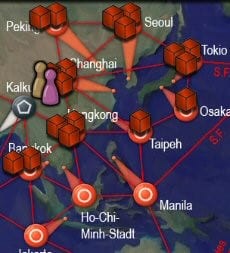
This is different in tabletop games that are actually good for beginners. For example, in Splendor, if you keep buying second tier cards because they seem like the best, and then maybe change your mind and go for first tier cards, that’s fine. You’re still within striking distance of victory, probably through the noble cards, I’d think. Maybe you thought you had to accumulate gems and go for third tier. That’s fine, now you’ve got a lot of gems that can be used on any strategy, even if you change your mind. Maybe you didn’t even realize there were points being counted; that’s fine, it’s difficult to avoid them, and you’ve accidentally accumulated a few anyway.
The same goes for Love Letter. You can’t really mess up any particular path to victory in these games, because beginner board games have many paths to victory. This means that it’s possible to make mistakes reading the rules, but it’s impossible to make a mistake choosing a strategy.
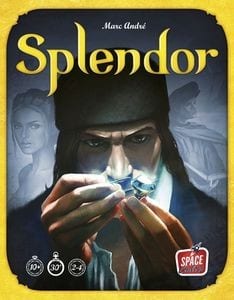
So when I say Splendor is getting expansions, you can understand why this is good for the tabletop hobby. We will be seeing the expansions for this great gateway game in the summer. Something else to do during the long hiatus.
Like all good gateway games, Splendor keeps it simple. It keeps your turn short, but makes your strategies clear. It makes all play styles viable. It isn’t too open-ended or random like Catan, or overwhelming like Pandemic. Also, Splendor has gems which means I have an excuse to share this link again.
Some final thoughts: Pandemic is overwhelming by design, because you know, uh, a Pandemic is a bit of an overwhelming disaster. I’ll probably review a few more boardgames in the future. If my thoughts about Pandemic are unclear, I can throw out a second article about why cooperative games in particular are not suited to beginner tabletop gamers, or if I want to indulge myself I’ll write up why certain games are not fun for any skill level.
In conclusion, Settlers of Catan sucks.
